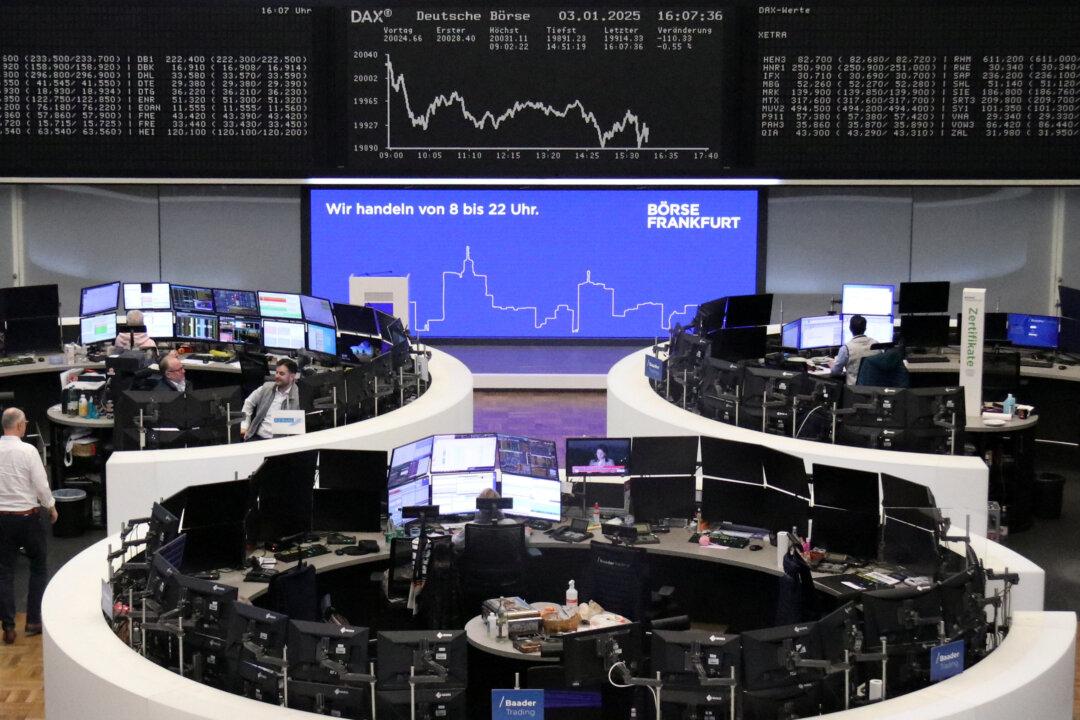German industrial orders and retail sales unexpectedly dropped off in November 2024, once again sparking recession fears, as the eurozone’s biggest economy showed minimal growth in the third quarter.
Industrial orders fell by 5.4 percent from October 2024 on a seasonally and calendar-adjusted basis, the federal statistics office in Berlin announced on Jan. 8.





